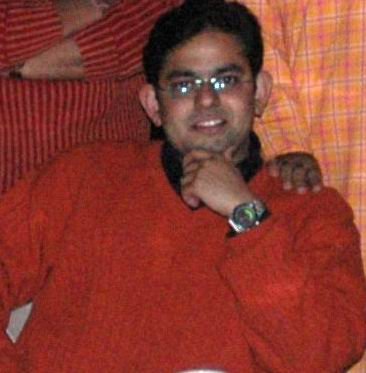How God Makes Lives Easier...
The Blissful lives of God's own children
To someone who believes in God, natural phenomena - the concept of life, death, evolution, natural disasters, disease, and so on - are very easy to explain. There is a God who is omnipotent and omnipresent. He* has a will that determines the destiny of each individual. You keep God pleased (in whatever manner your religion preaches -- a contradiction considering God imposes his will, but who cares?) and God keeps you pleased. Everything in Nature is creation of God - disease, earthquakes, other natural disasters when He is unhappy (Nature's wrath) and the beautiful weather, meadows, warm weather, sunlight when He is happy. God protects you if you're good. God punishes you for sin (refer your respective religions for specific ways in which you can commit sin. If you're too lazy to do that, just do whatever you want to do. You're sure to commit one sin or the other in the book irrespective of your religion). So, life is in this manner so simple and well defined for followers of God - God's own children.
Enter Muddled Non-believers
Most (not all) of these guys are mathematicians and physicists - who've spent their lives trying to understand how Nature manifests itself (without assuming God created it one monday morning). They find it difficult to explain how the world (and the universe) has come to be what it is today. Astrophysicists delve into the beginnings of the universe at time of the Big Bang to present time. Geophysicists study rocks, tectonic movements, etc. to explain earthquakes, mountain formations, etc. And so on and so forth.... Though lots of things are still unexplained in these fields, lots of things are explained quite well using the tools available to these guys (calculus, quantum physics, relativity, et al). Most of the natural phenomena seem like they're just following the forces of Nature. Let me take an example to put this in perspective. The earth has an atmosphere that came into existence when these gases were released by rocks that were beginning to cool. The oceans were formed in a similar manner when water was released. The temperature ensured some portion remained as water, other as ice and rest as water vapor. The motions of the molten lava moves landmasses and results in mountains, gorges, etc. etc. So, a lot of things do seem to be explicable.... If asked, anyone from this team would explain the present by a series of events that happened one after the other. But there is something that science has not been able to explain so far...
*A note to feminists, or anybody else annoyed by this pronoun: I don't know whether God is a He or a She or a combination but I'm just using this pronoun as it is the most commonly used. So, just following convention here!
To someone who believes in God, natural phenomena - the concept of life, death, evolution, natural disasters, disease, and so on - are very easy to explain. There is a God who is omnipotent and omnipresent. He* has a will that determines the destiny of each individual. You keep God pleased (in whatever manner your religion preaches -- a contradiction considering God imposes his will, but who cares?) and God keeps you pleased. Everything in Nature is creation of God - disease, earthquakes, other natural disasters when He is unhappy (Nature's wrath) and the beautiful weather, meadows, warm weather, sunlight when He is happy. God protects you if you're good. God punishes you for sin (refer your respective religions for specific ways in which you can commit sin. If you're too lazy to do that, just do whatever you want to do. You're sure to commit one sin or the other in the book irrespective of your religion). So, life is in this manner so simple and well defined for followers of God - God's own children.
Enter Muddled Non-believers
Most (not all) of these guys are mathematicians and physicists - who've spent their lives trying to understand how Nature manifests itself (without assuming God created it one monday morning). They find it difficult to explain how the world (and the universe) has come to be what it is today. Astrophysicists delve into the beginnings of the universe at time of the Big Bang to present time. Geophysicists study rocks, tectonic movements, etc. to explain earthquakes, mountain formations, etc. And so on and so forth.... Though lots of things are still unexplained in these fields, lots of things are explained quite well using the tools available to these guys (calculus, quantum physics, relativity, et al). Most of the natural phenomena seem like they're just following the forces of Nature. Let me take an example to put this in perspective. The earth has an atmosphere that came into existence when these gases were released by rocks that were beginning to cool. The oceans were formed in a similar manner when water was released. The temperature ensured some portion remained as water, other as ice and rest as water vapor. The motions of the molten lava moves landmasses and results in mountains, gorges, etc. etc. So, a lot of things do seem to be explicable.... If asked, anyone from this team would explain the present by a series of events that happened one after the other. But there is something that science has not been able to explain so far...
*A note to feminists, or anybody else annoyed by this pronoun: I don't know whether God is a He or a She or a combination but I'm just using this pronoun as it is the most commonly used. So, just following convention here!

